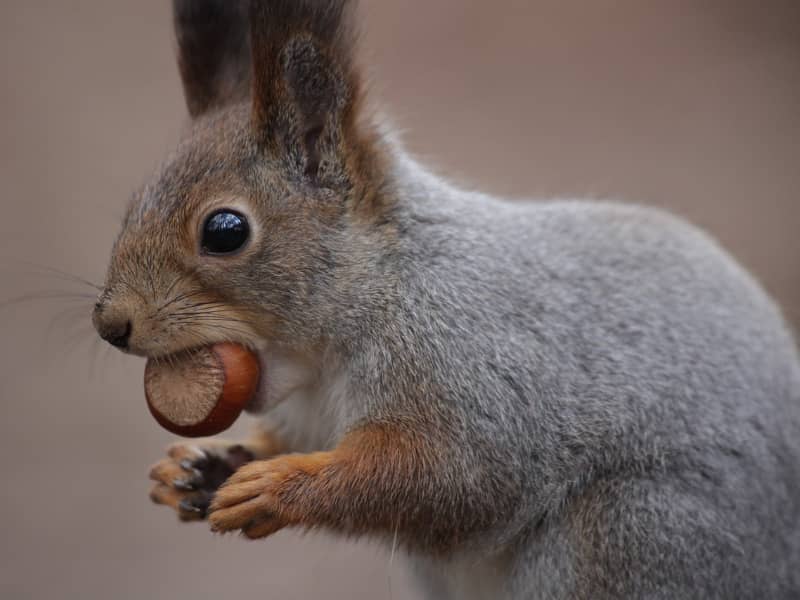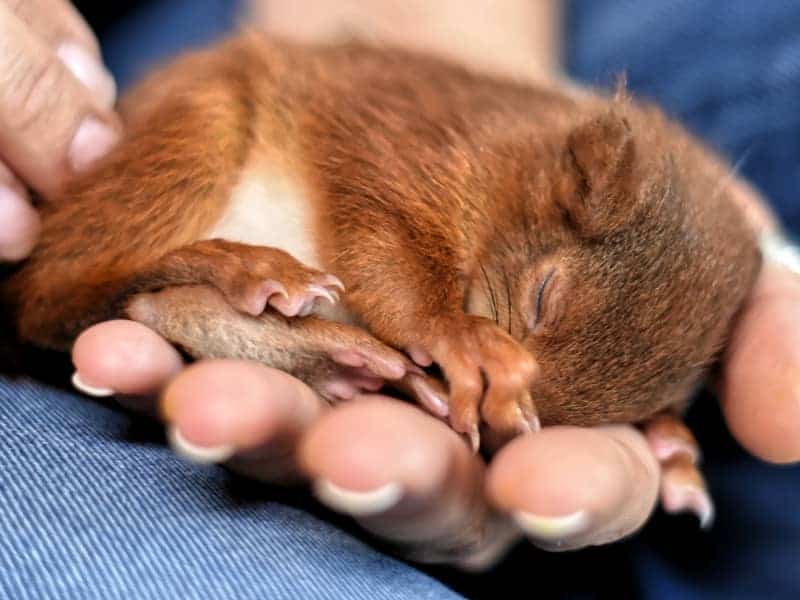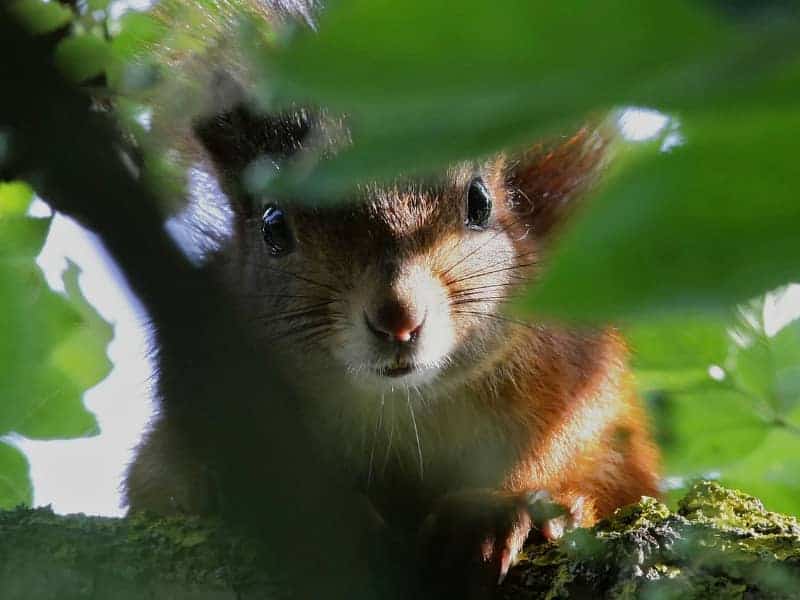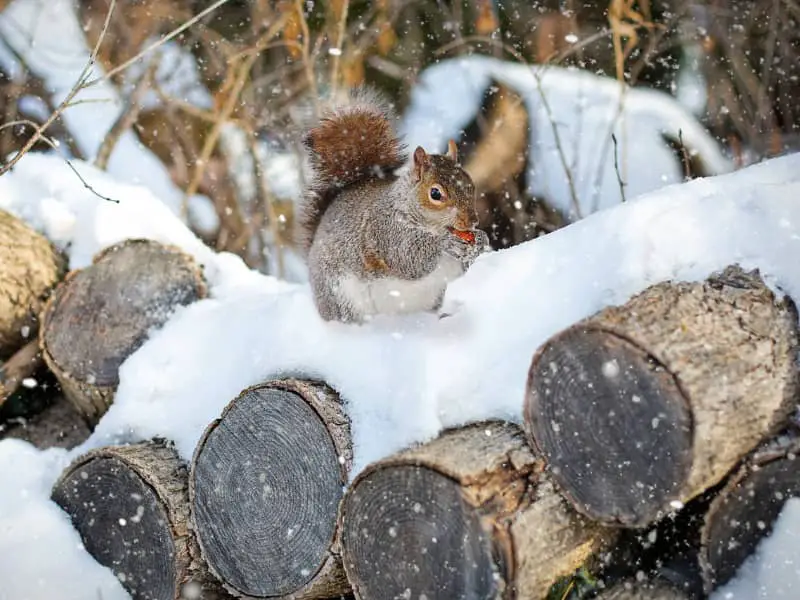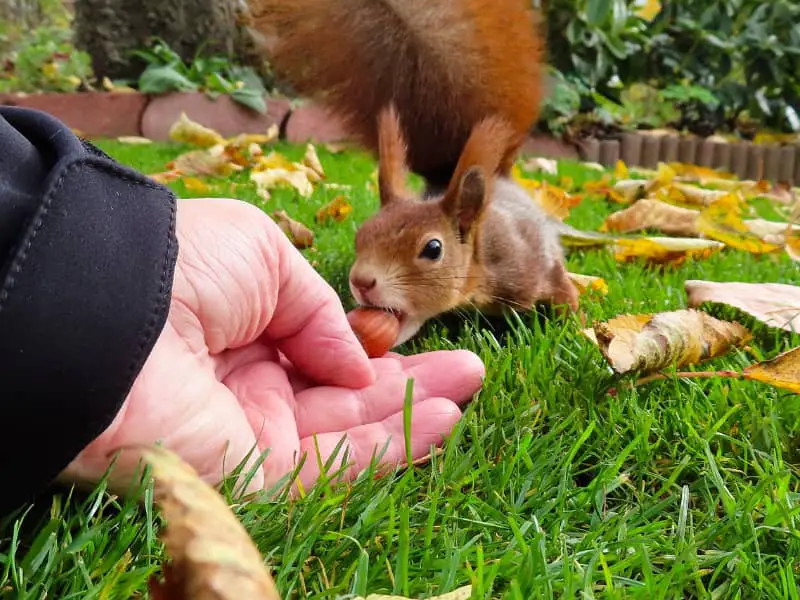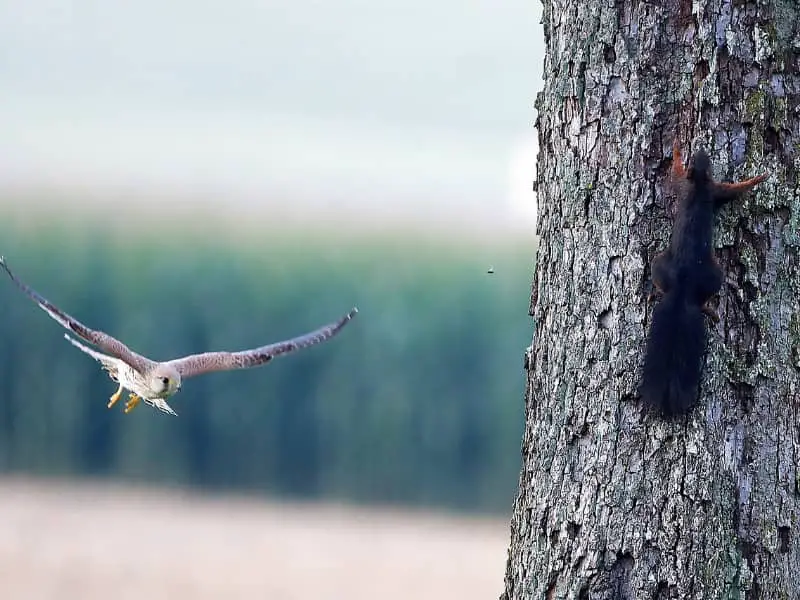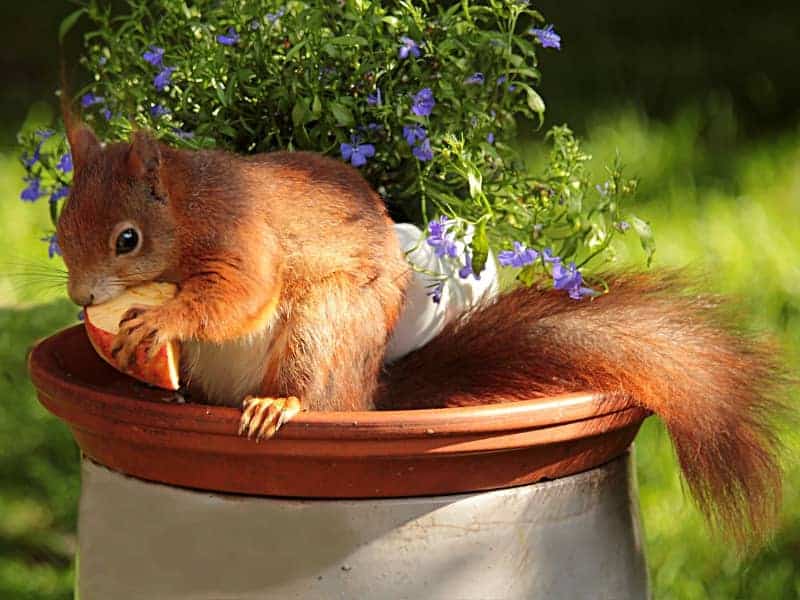
Squirrel life expectancy
The average life expectancy of squirrels is about 3 years. However, this is not true for all rodents. The first few weeks are only outlived by about one in four or five squirrels. If the young Squirrel an age of 6 months, you can assume the average life expectancy.
Squirrel life expectancy in captivity
In captivity, the life expectancy of squirrels can be up to 7 years. There are also some animals here, which are quite up to 10 years old. The significantly higher life expectancy is due to the safe life of the animals. The small rodents hardly have to be afraid of predators. In captivity, the rodents do not have to worry when it comes to
- Feed supply
- Feed quality
- Dwellings
- Veterinary care
goes.
Offspring have little chance of survival
The only native squirrel species in Germany is the Sciurus vulgaris. Under normal conditions, the bright red animal would reach a maximum age of 6 to 7 years. On average, however, it is just 3 years. Even the average life expectancy of squirrels is only reached by about 20 % of the animals. Unfortunately, they do not even survive the first year of life.
Why do the young squirrels die so early?
Many reasons are responsible for the short life expectancy of squirrels. One is the harsh winters and the other, of course, diseases that significantly shorten the life expectancy of squirrels. Also predators are extremely dangerous for the offspring. These include not only the goshawk, but also the pine marten and the eagle owl.
And last but not least, humans are also one of the natural Squirrels enemies. More and more forests are being cut down. This applies not only to damaged trees, but also to all others, as well as the undergrowth.
Can the age be recognized by the coat color?
This assertion persists. You the fur barb is dependent on the diet of the animals and has nothing to do with age. In higher mountain areas squirrels usually have a brown fur coloration. This is due to the diet of certain seeds.
In lower regions the fur is mostly red or reddish brown. The food supply is much more varied here.
In many cases there are also color differences between the summer and winter fur of squirrels.
How can you tell the age of squirrels?
At the age of about 4 weeks, the rodent fur is about 2 mm long. Even the hair on the tail is not longer. From the age of 6 - 7 weeks the whole body of the rodents is covered with fur. It also starts to become fluffy and denser now. However, the fur on the tail is not fully developed until after 10 - 12 weeks. Only then will the tail become really bushy.
Other characteristics by which you can recognize the age.
- Eyes - The small rodents are born with completely closed eyes. Only after about 5 weeks the little ones open their eyes. Exceptions are animals that can already open their eyes at 3.5 weeks.
- Teeth - A newborn squirrel has no teeth yet. At about 3 weeks, the lower incisors emerge. The upper incisors usually erupt at 4.5 weeks.
- Ears - In the newborn, the ears are still closed. This means that the auricle is directed against the head. Only at the age of 4 or 5 weeks, the ears are fully erected and are then open.
Author

-
Garden animal - A life with nature
Welcome to my animal blog! My name is Dirk and I am happy to take you on my journey through the fascinating world of animals and gardening.
Born 54 years ago, I have had an insatiable curiosity for the animal world around me since childhood. Although I have moved professionally in other industries, my true passion has always been animals and nature. It is remarkable how a small garden has become such an important part of my life.
Many of my fondest memories are associated with the animals that share our home. Whether it's the curious squirrels that scurry across the trees in the morning, the colorful variety of birds that visit our feeders, or the busy bees and butterflies that pollinate our flowers, every moment with them is invaluable to me.
This blog is my contribution to share my experiences, discoveries and insights with like-minded people. Here I will share stories of unforgettable encounters with animals, give tips on gardening and creating wildlife-friendly habitats, and take you on my journeys through nature.
Thank you so much for being here!
Cordial,
Dirk aka garden animal
Last posts
- 27. February 2024PetsVeganes Hundefutter – Grün und Gesund?
- 18. January 2024ChickensOregano für Hühner
- November 27, 2023HamsterDiurnal hamsters
- November 24, 2023HamsterHamster hammock

